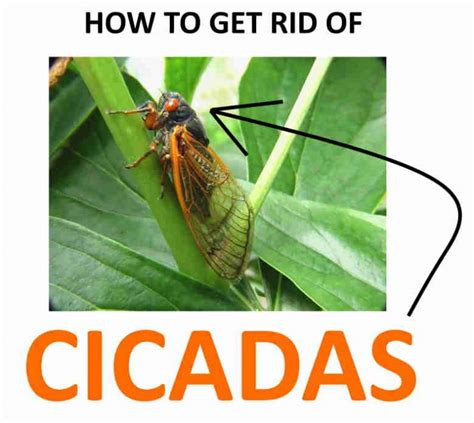How to Get Rid of Cicadas: A Comprehensive Guide
Cicadas. Those buzzing, clicking insects that seem to take over the summer landscape. While generally harmless, their sheer volume and persistent noise can be incredibly irritating. This comprehensive guide will explore effective methods to manage a cicada infestation and regain your summer serenity.
Understanding Cicadas: The First Step to Control
Before diving into control methods, it's crucial to understand the cicada life cycle. Knowing their habits is key to effective management. Cicadas are generally not considered pests in the traditional sense; they don't damage crops or infest homes like other insects. However, their sheer numbers can be overwhelming.
Types of Cicadas and Their Behavior
There are different types of cicadas, with varying life cycles. Some appear annually, while others, known as periodical cicadas, emerge in large broods every 13 or 17 years. Understanding the type you're dealing with can help determine the best approach.
Methods to Manage Cicada Populations
While completely eradicating cicadas from a large area is virtually impossible, you can implement strategies to significantly reduce their presence in your immediate surroundings.
1. Noise Reduction Strategies
Let's face it: the noise is often the biggest complaint. While you can't silence them entirely, you can lessen the impact:
- Noise-canceling headphones or earplugs: A simple and effective solution for personal relief.
- White noise machines: These can help mask the cicada sounds, creating a more peaceful environment.
- Strategic landscaping: Planting dense shrubs and trees around your home can act as a natural sound barrier.
2. Physical Removal Methods
While impractical on a large scale, you can remove cicadas from specific areas:
- Hand-picking: Carefully remove cicadas from plants or surfaces. This is most effective for small infestations.
- Vacuuming: Use a vacuum cleaner with a hose attachment to suck up cicadas. Dispose of the vacuum bag immediately.
3. Natural Predators
Encouraging natural predators can help control cicada populations:
- Birds: Birds are a natural predator of cicadas. Attract birds to your yard with bird feeders and bird baths.
- Other insects: Certain species of wasps and mantises prey on cicadas.
4. Chemical Control (Use with Caution)
Chemical control is generally not recommended due to the potential harm to beneficial insects and the environment. If you decide to use insecticides, always follow label instructions carefully and consider the potential risks. Focus on treating specific areas, not large swathes of your property.
Preventing Future Cicada Infestations
While you can't stop cicadas from appearing altogether, especially periodical broods, you can take steps to minimize their impact:
- Maintain healthy plants: Strong, healthy plants are less susceptible to cicada damage.
- Regular pruning: Remove dead or damaged branches to reduce potential breeding grounds.
Conclusion: Living in Harmony with Cicadas
While cicadas can be a nuisance, remember that they are a vital part of the ecosystem. By employing a combination of the methods outlined above, you can effectively manage cicada populations and minimize their disruptive effects, allowing you to enjoy your summer without excessive buzzing. Remember to prioritize environmentally friendly options whenever possible.
